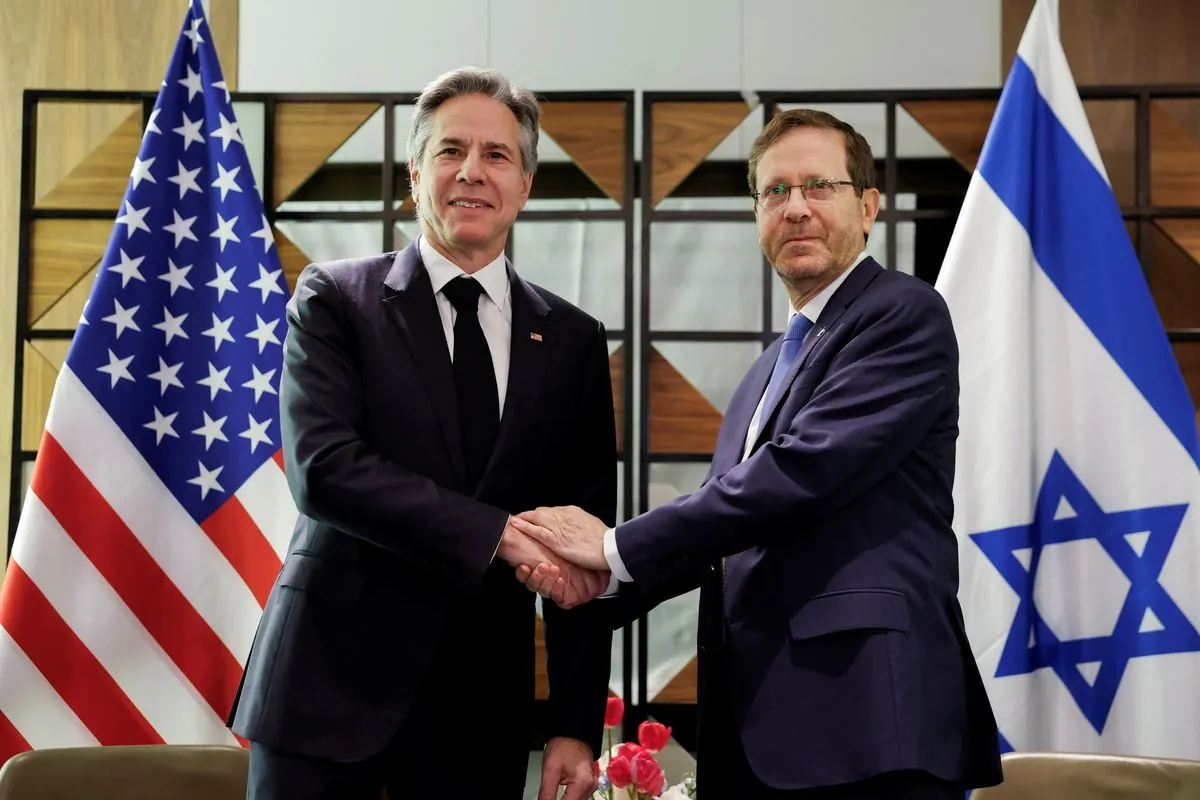U.S. diplomacy in the Gaza Strip and West Bank has fallen short of its potential, failing to engage openly and sincerely with Palestinians. This approach, rooted in restrictive policies and one-sided engagement, has had far-reaching consequences for both diplomatic efforts and humanitarian work in the region.
The Oslo Accords of 1993 and 1995 initially promised Palestinian autonomy and a path to peace. However, these goals were never fully realized. Instead, the U.S. government has implemented increasingly restrictive policies that have hindered effective diplomatic and humanitarian efforts in the occupied Palestinian territories.
One such policy is the "no-contact policy," which emerged from the designation of Hamas as a Foreign Terrorist Organization (FTO) by the U.S. State Department in 1997. This designation was reinforced after Hamas won Gazan elections in 2006. The U.S. Agency for International Development (USAID) subsequently issued Mission Order 21, prohibiting assistance to groups even minimally connected to the Hamas-run authority in Gaza.
These restrictions have had severe consequences for Palestinian communities. The closure of the Gaza International Airport in 2001, just three years after its opening, and the implementation of strict land and sea access limitations have effectively turned Gaza into what many describe as the world's largest open-air prison. The number of Gazans with work permits for employment in Israel has dropped by over 90%, further exacerbating economic hardship.
U.S. policies have also impacted humanitarian efforts. Health care activities, including those addressing the COVID-19 pandemic, have been constrained due to restrictions on engaging with government-run facilities. This has limited the effectiveness of crucial public health initiatives.
The legal landscape has further complicated matters for organizations working in Palestinian territories. The False Claims Act, originally enacted during the American Civil War, has been used to target NGOs providing humanitarian assistance in Gaza and the West Bank. Organizations such as the Carter Center, Oxfam Great Britain, and Norwegian People's Aid have faced legal challenges, often resulting in costly settlements or legal fees.
The one-sided nature of these restrictions is evident. While Palestinian-related organizations face intense scrutiny, there are virtually no penalties or constraints on U.S. assistance to Israel, despite concerns about Israeli settlement policies and security force actions in the occupied territories.
Recent events have highlighted the inadequacies of current U.S. diplomatic efforts. Following the October 7, 2023 attack by Hamas on Israel, the U.S. response has been criticized for lacking balance. The Biden administration has provided substantial military aid to Israel, including $3.8 billion in March 2024 and $8.7 billion in April 2024, while offering only mild reproaches for actions against Palestinian civilians.
The tragic death of Aysenur Eygi, a 26-year-old Turkish American activist, in mid-September 2024 underscores the need for greater accountability. Despite calls for a thorough investigation, the response from U.S. officials has been perceived as inadequate by many observers.
To restore credibility and effectiveness to U.S. diplomacy in the region, there is a pressing need to reevaluate and reform current policies. This includes reconsidering restrictions on engagement with Palestinian authorities, ensuring balanced application of laws such as the Leahy Laws, and fostering more open dialogue with all parties involved in the conflict.
As the situation in Gaza and the West Bank continues to evolve, the international community watches closely. The effectiveness of U.S. diplomacy in this critical region will have far-reaching implications for peace and stability in the Middle East and beyond.
"As a U.S. senior foreign service officer, these counterproductive policies often constrained my team in Gaza. We engaged in expensive and time-consuming vetting operations on organizations and staff to avoid the slightest possibility of linkage with the de facto authorities. We were greatly limited in potential partners among small-scale civil society and community-based organizations."
This firsthand account highlights the practical challenges faced by U.S. diplomats on the ground, underscoring the need for policy reform to enable more effective engagement and assistance in the region.
